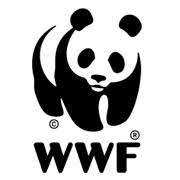Cause Area
Financials
-
2020
Total IncomeRs.1,002,585,000Total ExpensesRs.959,318,788Non Program ExpensesRs.122,304,330Program ExpensesRs.837,014,458Tip: Click on any value above to exclude it. -
2021
Total IncomeRs.805,027,981Total ExpensesRs.767,947,118Non Program ExpensesRs.99,439,338Program ExpensesRs.668,507,780Tip: Click on any value above to exclude it. -
2022
Total IncomeRs.930,014,148Total ExpensesRs.904,000,000Non Program ExpensesRs.124,160,577Program ExpensesRs.779,432,016Tip: Click on any value above to exclude it. -
2023
Total IncomeRs.1,155,181,005Total ExpensesRs.1,118,970,783Non Program ExpensesRs.36,829,577Program ExpensesRs.984,135,263Tip: Click on any value above to exclude it. -
2024
Total IncomeRs.1,172,297,762Total ExpensesRs.1,141,370,912Tip: Click on any value above to exclude it.
Geographies Served
Programs
-
Priority Species Programme
Focuses on the protection of specific species of wildlife that are in danger of going extinct because of the destruction of their natural habitats.
It included prominent species like the tiger, rhino and elephant when the programme started and now has expanded to include the Nilgiri tahr, red panda and snow leopard.
WWF India aims to work to reduce the threats to these species from poaching, human-wildlife conflicts, trade in wildlife parts, habitat destruction and legal support.
-
Critical Regions Programme
This programme seeks to protect key regions with rich biodiversity by partnering with key stakeholders and with appropriate interventions. It shifts focus from the narrow vision of just looking at protected areas to a wider approach to landscapes, livelihoods, long term initiatives in coordination with local communities, NGO’s and Government agencies.
-
Sustainable Agriculture Programme
This programme concentrates on addressing surface water usage and over-exploitation of groundwater resources to grow crops like paddy, cotton and sugarcane. It attempts to rope in farmers to be stakeholders in its efforts of conservation and works to improve farming practices using best management methods facilitating market access and maintaining the sensitive balance between agriculture and forests.
-
Marine Conservation Programme
India’s coastal and marine eco-systems boast of a rich variety of biodiversity and are of critical ecological value. Due to exploitation, these habitats are facing a severe threat of destruction that in turn is threatening marine life with extinction.
WWF India is active in addressing the issues of illegal fishing, habitat degradation, illegal wildlife trade, unsustainable tourism and plastic pollution by introducing sustainable fishing and development practices and also improved waste management methods.
-
Environmental Education Programme
WWF India has been working on this important aspect of its efforts since 1969. It strives to educate and inform children, youth and citizens of India to work towards creating a sustainable planet.
Its awareness programmes are running in sixteen states across India and include the development of nature clubs, building environmental awareness and knowledge, developing requisite capacity and skills and enabling action for conservation and sustainability.
Registration Details
-
PAN Card
AAATW0356P
-
Registration Number
E4359 (Bombay)
-
CSR Form 1
Not Available
-
80G
AAATW0356PF19783
-
12A
AAATW0356PE20007
-
FCRA
231660074
About
-
Headquarters
New Delhi, Delhi
-
Since
1969
Impact
For over 50 years, WWF-India has been working tirelessly towards nature conservation through its strong network of offices across different geographical regions in India, addressing critical conservation issues and creating lasting impact.
Vision and Mission
WWF-India's mission is to stop the degradation of the planet's natural environment and build a future in which humans live in harmony with nature, by conserving the world's biological diversity, ensuring sustainable use of renewable natural resources, and promoting reduction of pollution and wasteful consumption.
Political & Religious Declarations
-
Political Affiliation
-
Religious Affiliation
Location
-
Offices in Cities
New Delhi
Other Details
-
Type
Non-profit
-
Sub Type
Trust
Website
Technology Adoption
-
SOC 2 Compliant
No
-
Financial Management
-
Beneficiary Management



